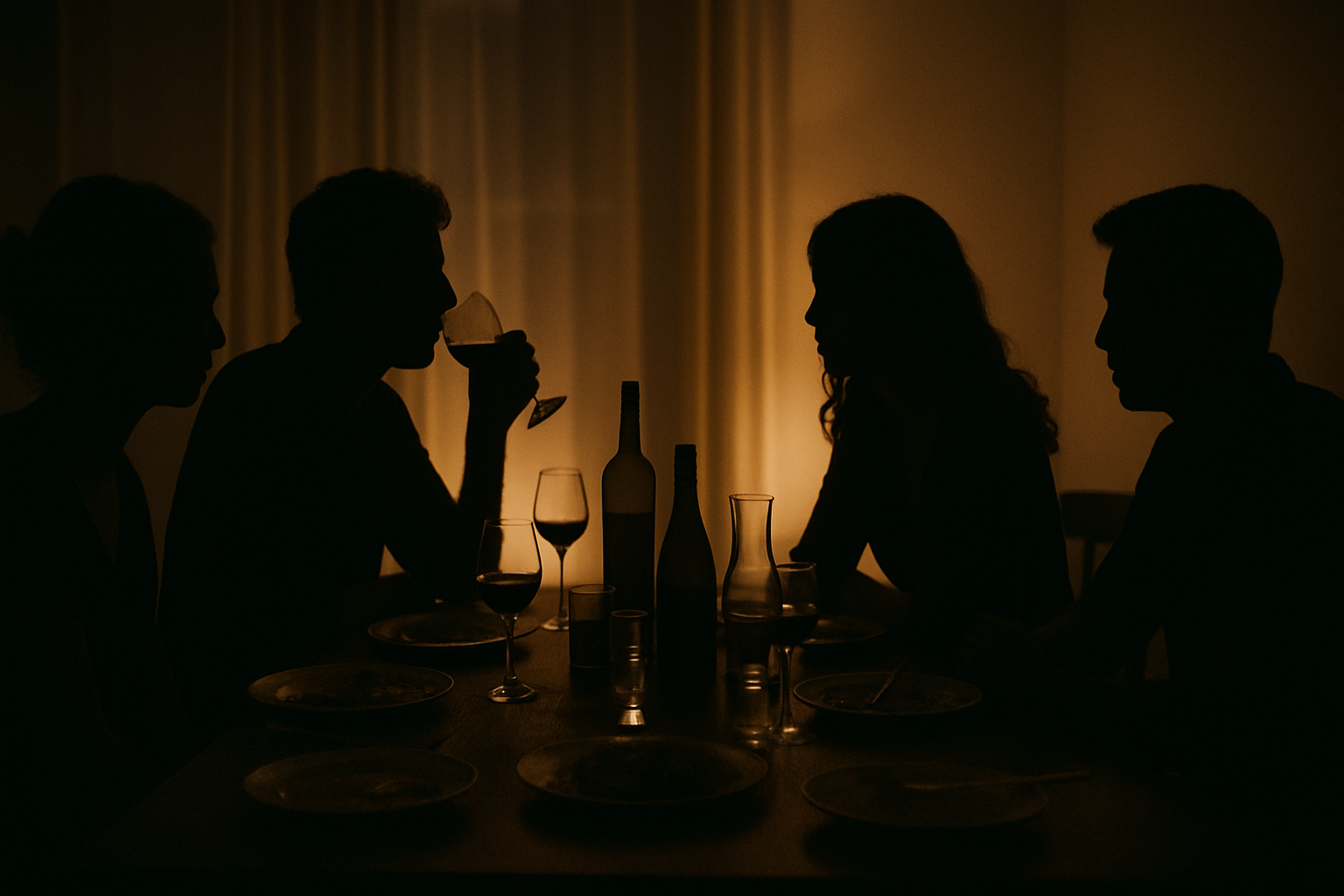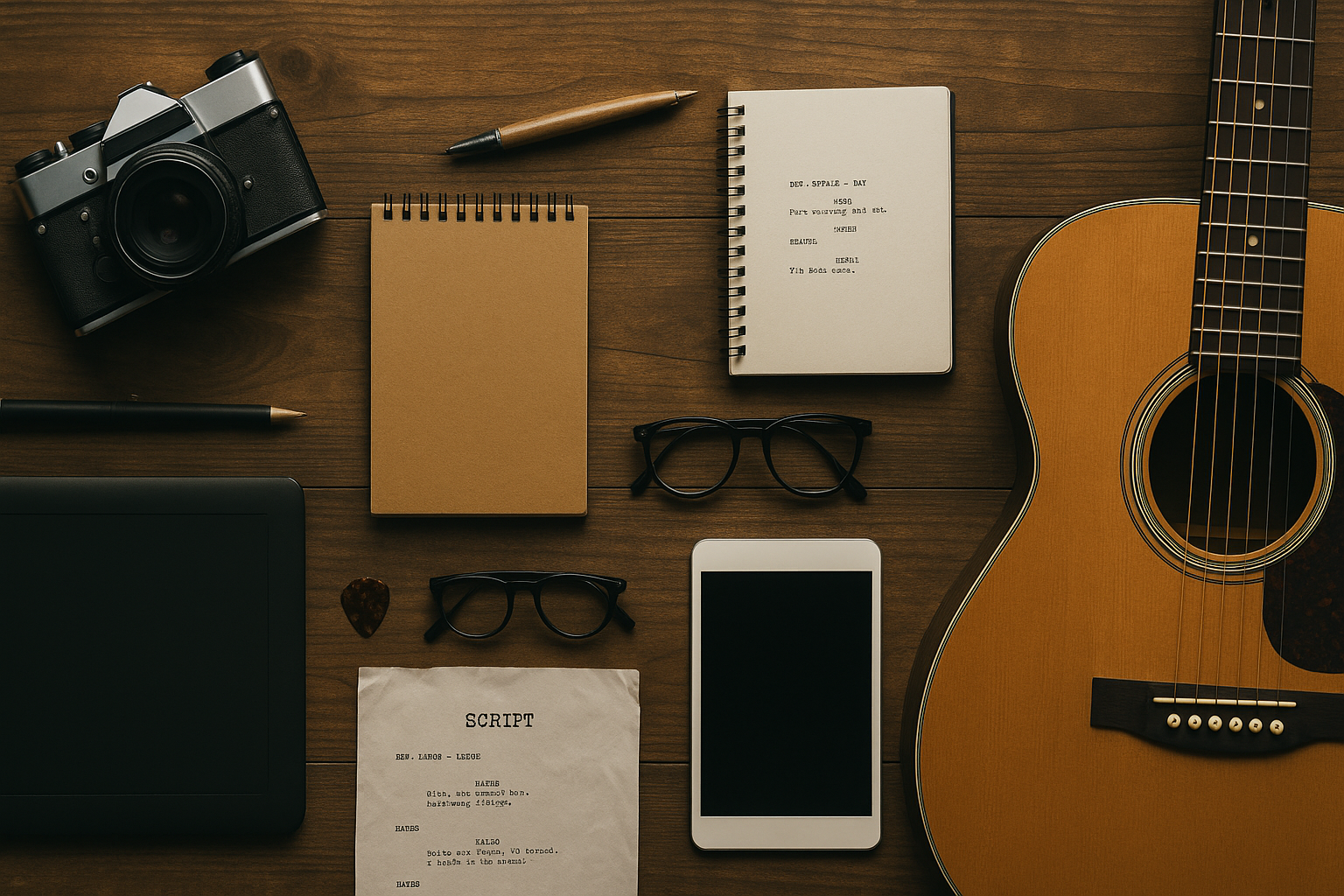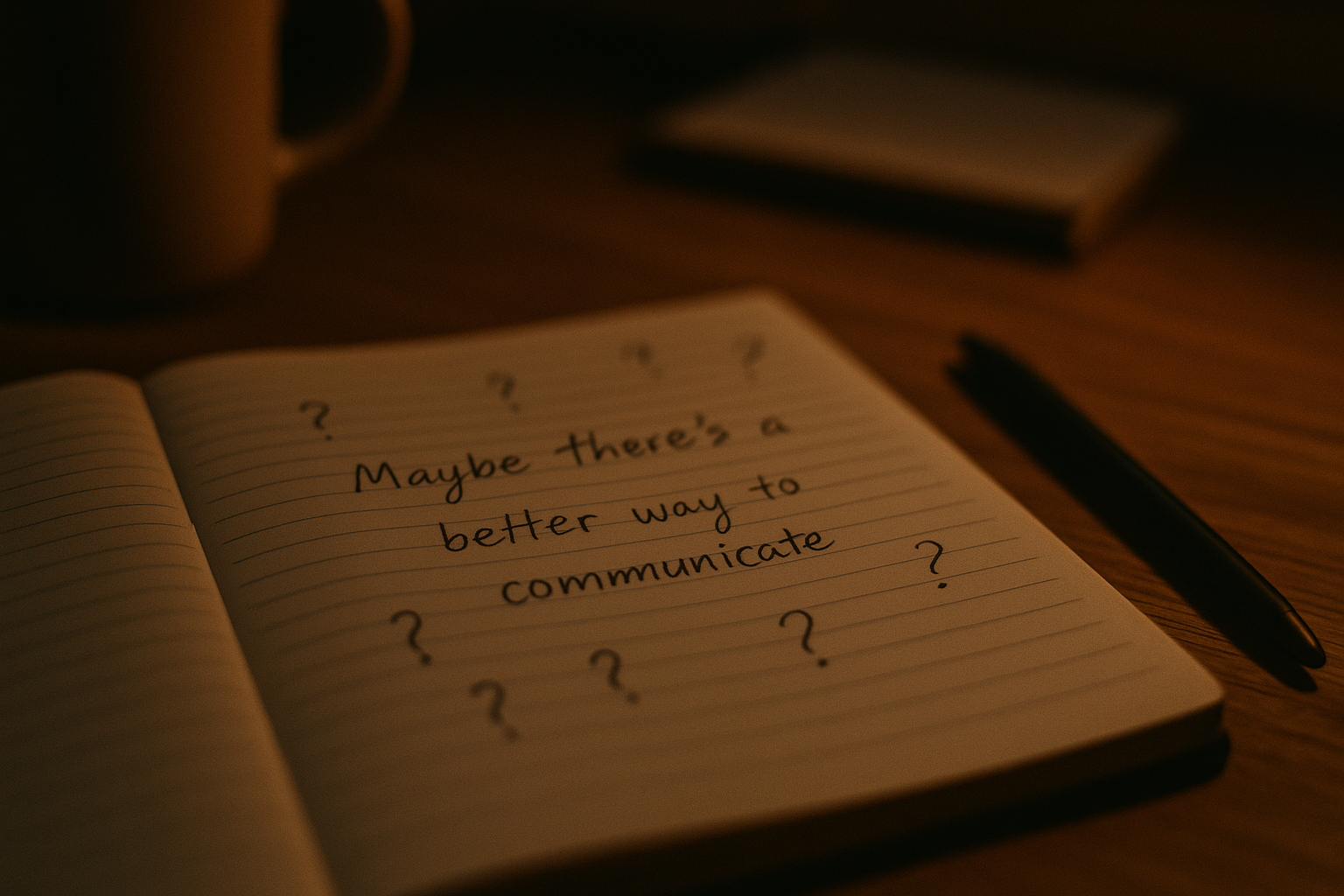#003 : Between Friends, Fears, and the Edge of Change


June 27, 2025






It’s been a while since I unplugged from the grind, but this week, I found myself around an old dinner table with friends—a rare pause in the chaos of building businesses and living inside spreadsheets. Good food, good wine, real conversation. Honestly, it was exactly what I needed.
The crew? The usual suspects: a musician, a filmmaker, a social worker, and a consultant. All creatives, all sharp as hell, each with their own weird and wonderful way of looking at the world. Whenever we get together, it feels like the room charges up. No small talk—just rich, meandering conversations that wind through the things that matter.
Somewhere between the main course and dessert, the spotlight turned to me. I talked a bit about The Rift and the work I’ve been doing in AI. There were congratulations on the launch, the kind words friends give when they know how hard you’ve been hustling. Then one of them—fresh from watching Geoffrey Hinton warn about humanity’s possible extinction on The Diary of a CEO—dropped her worries on the table. “Aren’t you scared?” she asked. “AI could literally end us.” She wasn’t joking. Around the table, heads nodded, some with a certain quiet disdain for AI’s impact on creativity, others just unsettled.

Subscribe now to unlock the full article and gain unlimited access to all premium content.
SubscribeIt’s been a while since I unplugged from the grind, but this week, I found myself at a dinner table with friends—a rare pause in the chaos of building businesses and living inside spreadsheets. Good food, good wine, real conversation. Honestly, it was exactly what I needed.
The crew? The usual suspects: a musician, a filmmaker, a social worker, and a consultant. All creatives, all sharp as hell, each with their own weird and wonderful way of looking at the world. Whenever we get together, it feels like the room charges up. No small talk—just rich, meandering conversations that wind through the things that matter.
Somewhere between the main course and dessert, the spotlight turned to me. I talked a bit about The Rift and the work I’ve been doing in AI. There were congratulations on the launch, the kind words friends give when they know how hard you’ve been hustling. Then one of them—fresh from watching Geoffrey Hinton warn about humanity’s possible extinction on The Diary of a CEO—dropped her worries on the table. “Aren’t you scared?” she asked. “AI could literally end us.” She wasn’t joking. Around the table, heads nodded, some with a certain quiet disdain for AI’s impact on creativity, others just unsettled.

I listened. These are smart, hardworking people, fiercely proud of their craft. But there was a kind of collective resistance—a sense that AI wasn’t just a tool, but a threat to everything they’d worked for. A cheat code for the lazy, a shortcut that strips the soul out of the work. I get it, even if it stings.
Maybe it’s the rebel in me, but I couldn’t let it go. I pushed back, gently at first, then maybe a little too much. “Why not use AI to get the boring stuff out of the way? What if it could help you finish the things you care about?” My filmmaker friend, who’s been working on a sci-fi novel for eight years, shot back that using AI would cheapen it. “It takes the soul out of my writing,” he said. When I asked what he’d actually tried, it turned out—nothing. Just a hunch, or maybe a fear.
I wanted to convince them, I really did. But you can’t force curiosity on people. The table got tense, the air thick with all the unsaid things that come up when you’re standing at the edge of change. I pulled back. This was supposed to be a night off, not another debate. “Look,” I said, “I get the fears. I have them too. But the potential we have in front of us—if we stay open—is bigger than the risk. The revolution’s here, whether we like it or not.”
We let the topic go, letting the conversation drift into other stories—projects, passions, frustrations. And that’s where the real magic happened. My filmmaker friend talked through his next shoot, hustling to film a feature in sixteen days—on real film, no less. The level of planning, the raw inventiveness, the way he adapts to every obstacle with a new trick or workaround—that’s human ingenuity at its peak. AI could never do that without someone like him steering the ship.
Later, the guitarist told us about his journey—starting at eleven, teaching by seventeen, now a fixture on Broadway, still practicing every day. Ten thousand hours? He probably hit that before most of us finished high school. That’s not just skill; that’s love. It’s something no shortcut can replace.

The night wound down. We said our goodbyes, drifting back to our own lives—some still suspicious of AI, some just tired, but all of us a little fuller than when we’d arrived.
Walking home, I kept replaying that dinner in my head. Here’s what keeps echoing for me: I wish smart, driven people would give AI a real shot—just get past the discomfort, see if it can elevate what they already do so well. I understand the pride and the grind of creative work, but I can’t quite wrap my head around the resistance to trying something with the power to change everything. The fear is real, but so is the potential, isn’t it?
Maybe I get too pushy sometimes, but it’s only because I realize how much more powerful these people could become with the right tools. At the same time, I also realize, in all this, it is more important than ever to remember and recognize what makes us human—creativity, love, passion, connection to a craft, connection to each other.

If I’m honest, I’m left with more questions than answers after that dinner. Maybe that’s the point. These questions drive me forward: Maybe there’s a better way to communicate my perspective. Maybe the fear needs to be acknowledged better. How do I strike the right balance between embracing the new and honoring what’s timeless in us? All questions I keep asking myself.
Maybe all I can do for now is keep showing up—for the work, for the people, and for the conversation itself—quietly hopeful that, somewhere in the tension, we’ll find a way to bring the best of both worlds along with us.


.svg)